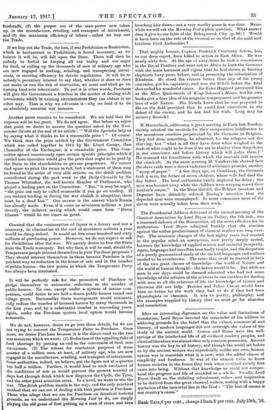The Presidential Address delivered at the annual meeting of the
Classical Association by Lord Bryce on Friday, the 5th inst., was a reasoned defence of the Humanities, all the more effective for its moderation. Lord Bryce admitted frankly that the reaction against the undue predominance of classical studies was long over- due. The economic changes of the last eighty years had created in the popular mind an association, now pretty deeply rooted, between the knowledge of applied science and material prosperity. Again, languages had too often been badly taught, and the despotism of a purely grammatical study of the ancient languages and authors needed to be overthrown. The more that could be learned in both of the two great classes of knowledge—the world of Nature and the world of human thought—the better would it be. But while no man in our days could be deemed educated who had not some knowledge of the relation of the sciences to one another, for dealing with men in all the relations of life the knowledge of tissues and electrons did not help. Pericles and Julius Caesar would have been no better for the work they had to do if they had been physiologists or chemists. It was to poetry, philosophy, and the examples supplied by history that we must go for stimulus and consolation.


























 Previous page
Previous page